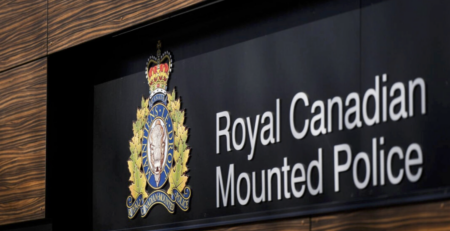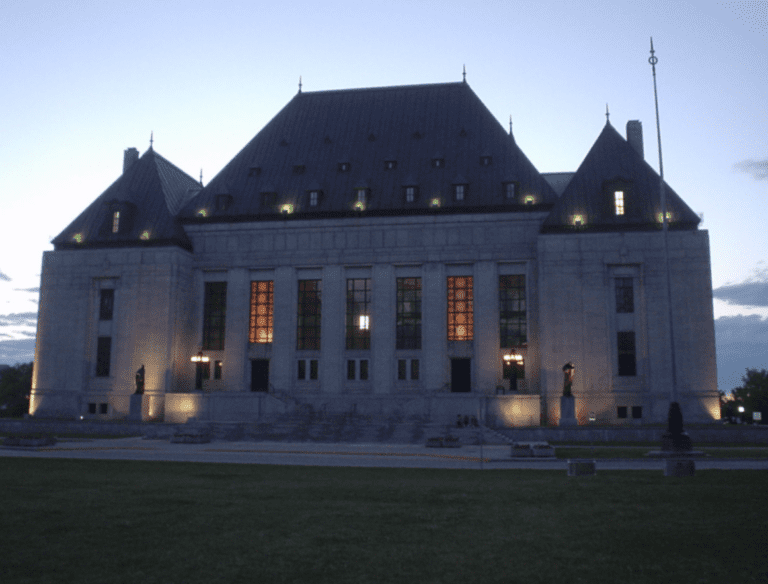John Carpay – The Western Stadard
The Provincial Administrative Penalties Act was rushed through the Legislature in June of 2020, while constitutional lawyers had their hands full with lockdown measures, and were busy defending people who had been issued huge fines for exercising their Charter freedoms, like protesting peacefully outdoors. Passed under the ever-popular banner of cracking down on impaired driving, the Provincial Administrative Penalties Act makes Albertans guilty until proven innocent. Alberta’s provincial traffic court will be practically abolished, even for drivers facing severe penalties such as the loss of their driver’s license. Instead of being charged with a traffic offence to which one can plead “not guilty,” Albertans will be presumed guilty upon receiving a “notice of penalty” from the police.
Albertans wishing to try their luck at proving their innocence must pay a non-refundable fee of $50 to challenge a penalty of $299 or less, or pay a non-refundable $150 to challenge a penalty of $300 or more.
Instead of appearing in-person before an impartial judge in traffic court during public and transparent proceedings, Albertans who have been “notified” of their penalty by a policeman will have only a private or secret telephone or zoom encounter with a provincial government employee called an “adjudicator.” The government (as the policeman) says you’ve broken the law and has already found you guilty, and now the government (by way of one of its employees) decides on whether you have sufficiently proven your innocence. This is like judge John Green ruling on a case where John Green is himself the plaintiff: the bias is obvious.
The Provincial Administrative Penalties Act destroys judicial independence because the government employee “adjudicator” is subject to performance reviews, promotions, and (potentially) dismissal. Politicians and senior bureaucrats would not dare to instruct an independent traffic court judge, but they can easily pressure an “adjudicator” to see to it that more Albertans pay more fines.
Section 18(1) states: “The burden of proof in a review is on the person requesting the review.”
The accused person no longer has the right to see all of the government’s documents that are relevant to her case, including documents that might assist her defense. Further, the accused no longer has the right to see relevant documents prior to the “review.”
Section 18(4) of the Provincial Administrative Penalties Act expressly abolishes the rules of evidence. The “adjudicators” need not be lawyers and can consider improper evidence such as hearsay. Section 14 declares that any document “confirmed” by a police officer is “deemed to have been made under oath.” The officer’s notes, and any hearsay provided by an anonymous witness, can be “confirmed” by the officer, and will then be treated by the “adjudicator” as though it is sworn testimony. Perversely, while the “adjudicator” is asked to believe and trust documents provided by police as though sworn under oath, the already-guilty recipient of the “notice of penalty” cannot cross-examine the police officer or any other person who makes assertions or accusations. This shows how biased this new “review” procedure is: all police evidence (including third-party hearsay) is declared to be reliable and trustworthy, yet that very same evidence cannot be challenged by cross-examination. It’s “heads I win” for the government and “tails you lose” for the already-guilty Albertan who received her “notice of penalty.”
No person may be cross-examined. So, if “Jane Smith” photographs or writes down your license plate and calls the police to accuse you of driving erratically or dangerously, a policeman can, if he believes Jane’s story, find you guilty of a traffic violation immediately. The policeman can come to your house and give you a “notice of penalty” by which you are instantly guilty of whatever Jane Smith accused you of. You can then pay a non-refundable $50 or $150 for a “review” (not a fair trial) before an “adjudicator” (not a judge), but neither you nor your lawyer can cross-examine Jane Smith about her accusations against you.
The Provincial Administrative Penalties Act allows for appeals, but specifies that the Court of Queen’s Bench must consider only whether the adjudicator’s decision is “reasonable,” and must disregard any errors in law (like admitting hearsay as evidence, for example).
“But it’s only traffic court,” argues the Alberta government. “We are not killing the presumption of innocence for criminal matters.” Jason Kenney and his United Conservative Party fail to understand that the presumption of innocence operates as a shield between the individual and the overwhelming power of the state. It stops the government from handing out fines arbitrarily and from imposing penalties easily. It protects citizens from wrongful convictions and unjust punishments, whether “criminal” or not.
The presumption of innocence is vital to a free and democratic society because it places necessary restraints on a powerful state which, if left unchecked, can easily crush an individual. Section 11(d) of the Canadian Charter of Rights and Freedoms provides that “any person charged with an offence has the right to be presumed innocent until proven guilty according to law in a fair and public hearing by an independent and impartial tribunal.” The Supreme Court of Canada has ruled that the presumption of innocence is not limited only to criminal law, but extends to any offence that can result in punishment, stating: “It cannot be seriously contended that, just because a minor traffic offence leads to a very slight consequence, perhaps only a small fine, that offence does not fall within section 11. It is a criminal or quasi‑criminal proceeding.”
So why is Alberta ditching the presumption of innocence? Because provincial traffic court is expensive, says the government. But government revenues from traffic fines exceed the cost of operating traffic courts, by many multiples. Millions of tickets are issued to Albertans each year, of which only 3% end up in court. If traffic courts are too busy, police can easily help solve that problem by targeting theft, vandalism, break-and-enter, assault, murder and other crimes, rather than devoting huge swaths of police resources to speed-traps and other traffic enforcement.
Minister of Transportation Rajan Sawhney and acting Minister of Justice and Solicitor General Sonya Savage claim that “serious criminals are getting back onto the streets because the courts are bogged down with traffic issues.” But traffic matters are dealt with in traffic court, not criminal court. If the ministers are truly concerned about “serious criminals” on the streets they can easily increase criminal court capacity by appointing more judges and hiring more prosecutors, and they can direct police to focus on serious crimes rather than on traffic offences. There is no need to abolish traffic court, or make Albertans pay $50 or $150 just for a chance to try to prove their innocence in a biased “review” process.
Albertans have been told since March 2020 to give up their Charter rights and freedoms, and to submit to permanent lockdown policies, because hospitals are overcrowded. This absolves the government of its failure to increase hospital capacity in the past 22 months. In similar fashion, the Provincial Administrative Penalties Act abolishes the Charter right to be presumed innocent until proven guilty, under the pretext of saving money and keeping serious criminals off the streets. Both claims are disingenuous. There is simply no need to violate Charter rights and freedoms because of government negligence or incompetence.









